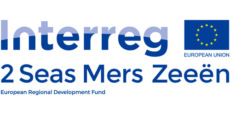InterReg 2 Seas; Boosting Human Capital
An action research project to train low-skilled school-leavers, without prospects, for employment.
The BHC2 project, part of Interreg 2 Seas, will create innovative ways of developing, educating and training low-skilled young people aged between 18-24 both in Kent and in areas across the sea in Belgium and France.
The project focuses on young job-seekers who have left school, usually after Year 11, who do not have the necessary qualifications to get onto a basic skills training course nor the motivation and social skills to find and keep a job.
BHC2 is designed to help them acquire skills usinginnovative learning tools (group relations; serious gaming; virtual and augmented reality; video instruction, for instance), that will equip them to gain apprenticeships and subsequently a permanent job in a local company.
The project will run three x 12-week programmes: integrated academic study (3 weeks) and a technical work experience placement (9 weeks) for a cohort of 30 over three years.
Mid-Kent College will provide a full-time 3-week programme of tuition in science, maths and English. Then the participants get actual work experience in local organisations over 9 weeks, returning to the Mid-Kent College for one day per week to continue with their academic studies.
Also, during this period, the 20 tutors/mentors from the employer local organisations will participate in a Training-the-Trainers programme from the University of Greenwich at Medway (eligible for CPD points).
Kent County Council, through its Employment and Skills Department, and the DWP, though its Job Centre Plus, will identify the young people who they believe will benefit from participating in the programme.
Before, during each programme, and after, the Tavistock Institute will:
- work with both the job seeker and the families of everyone in the cohort;
- run group relations events with the cohort;
- offer professional development activities for the trainers/mentors of the participating employers.
We understand that job seekers need different types of support in order to be ready for work, and the Tavistock Institute will offer that support as they accompany participants through the programme. We anticipate that by engaging in this programme, both participants and their families will acquire a renewed sense of motivation and optimism towards growth and development, with increased chances of employment and better future prospects; less stress and improved financial conditions; and a consequent enriched sense of themselves as useful citizens capable of contributing positively to their communities and to society as a whole.
Across the seas, other partners in Belgium and France will offer complimentary technological, pedagogical and/or organisational knowledge from their region and from this pool of expertise and knowledge exchange will emerge a new generic training model.
The project will be evaluated throughout to identify and mitigate learning barriers and enhance understanding of the gaps between companies with skills shortages and the young low-skilled unemployed, encouraging learner-centred training and SMEs investing in training, eventually leading to a grassroots change in culture.



